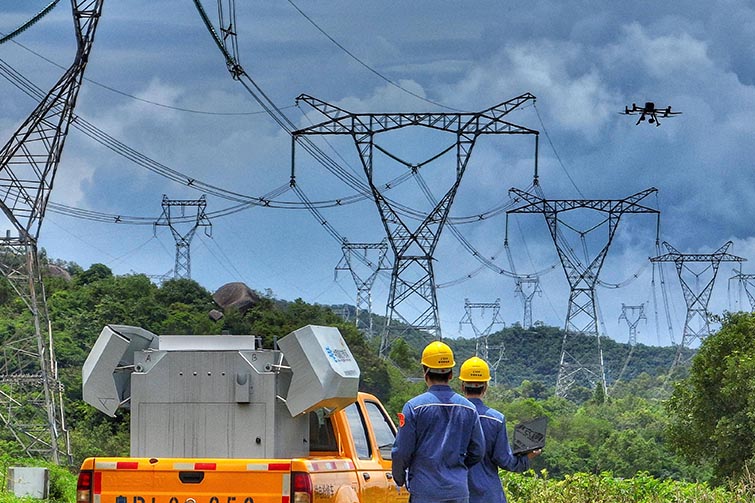

Smart Grids: The Demand of Our Times
As global energy demands grow and concerns about sustainability intensify, the transformation of traditional power systems into smart grids has become an essential step forward. Smart grids, characterized by advanced technologies, real-time data exchange, and improved efficiency, represent a revolution in energy management. This shift is not just a technological evolution; it is a necessity of our era.
What Is a Smart Grid?
A smart grid is an upgraded electricity network that uses digital communication technology to monitor, control, and optimize the generation, distribution, and consumption of electricity. Unlike traditional grids, which operate on one-way communication, smart grids enable two-way interaction between power providers and consumers.
Key components of smart grids include:
- Advanced Metering Infrastructure (AMI): Smart meters that track and communicate energy usage in real time.
- Sensors and IoT Devices: For monitoring equipment and detecting faults.
- Energy Storage Systems: To balance supply and demand, especially for renewable energy.
- Automated Control Systems: To enhance grid reliability and prevent outages.
Why Is Grid Modernization Necessary?
1. Rising Energy Demand
With rapid urbanization and industrialization, energy consumption is increasing globally. Traditional grids struggle to cope with peak demand, leading to inefficiencies and blackouts. Smart grids optimize energy distribution and reduce losses, ensuring a stable power supply.
2. Integration of Renewable Energy
The push for sustainability has led to the widespread adoption of renewable energy sources like solar and wind power. However, these sources are intermittent by nature. Smart grids enable the seamless integration of renewable energy by balancing fluctuations and storing excess energy for later use.
3. Enhancing Energy Efficiency
Energy efficiency is critical to reducing carbon emissions and lowering costs. Smart grids use real-time data to optimize electricity flow, identify energy waste, and improve overall grid performance.
4. Improving Reliability and Resilience
Traditional grids are vulnerable to disruptions caused by natural disasters, equipment failures, and cyberattacks. Smart grids enhance resilience by detecting issues early, isolating affected areas, and restoring power faster.
5. Empowering Consumers
Smart grids provide consumers with detailed insights into their energy usage through smart meters and apps. This transparency encourages energy conservation and allows households to make cost-saving decisions, such as using electricity during off-peak hours.
Technological Innovations Driving Smart Grids
Several technologies are at the heart of smart grid development:
- Artificial Intelligence (AI) and Machine Learning:AI algorithms predict energy demand, optimize grid operations, and detect anomalies in real time.
- Internet of Things (IoT):IoT devices connect various components of the grid, enabling seamless communication and data exchange.
- Big Data and Analytics:Massive amounts of data collected from sensors and meters are analyzed to enhance decision-making and efficiency.
- Blockchain Technology:Blockchain ensures secure and transparent energy transactions, especially in decentralized grids.
- 5G Networks:High-speed connectivity facilitates instant communication between grid components, enhancing responsiveness.
Global Trends in Smart Grid Adoption
1. United States:
The U.S. leads in smart grid deployment, focusing on grid modernization, renewable energy integration, and cybersecurity.
2. Europe:
European countries are heavily investing in smart grids to achieve carbon neutrality by 2050. Initiatives like the European Green Deal support grid innovation.
3. China:
As the world’s largest energy consumer, China is rapidly upgrading its power infrastructure. The country is integrating renewable energy into its grid and deploying smart meters nationwide.
4. Developing Nations:
In regions like Africa and Southeast Asia, smart grids are helping to expand access to electricity while reducing losses and improving reliability.
Challenges to Smart Grid Implementation
Despite their advantages, smart grids face several obstacles:
- High Initial Costs:The infrastructure required for smart grids demands significant investment.
- Data Security Concerns:The interconnected nature of smart grids makes them vulnerable to cyberattacks.
- Complexity of Integration:Transitioning from traditional to smart grids requires coordination between multiple stakeholders, which can be challenging.
- Regulatory Hurdles:Standardizing smart grid policies across regions and nations is a time-consuming process.
The Future of Smart Grids
Smart grids are not just a technological innovation—they are a cornerstone of the transition to sustainable energy systems. As artificial intelligence, renewable energy, and energy storage technologies continue to advance, smart grids will become even more efficient and accessible.
Future trends in smart grids include:
- Decentralized Energy Systems: Consumers will play a more active role as "prosumers," generating and sharing electricity through microgrids.
- Energy Sharing Platforms: Peer-to-peer energy trading will allow surplus energy to be sold to neighbors or back to the grid.
- Enhanced Grid Resilience: AI and predictive analytics will further improve grid reliability and disaster preparedness.
Conclusion
The smart grid revolution is essential for addressing the energy challenges of the 21st century. By improving efficiency, integrating renewable energy, and empowering consumers, smart grids pave the way for a more sustainable and reliable energy future.
Investing in smart grid technology is not merely a choice but a necessity to meet the demands of our time. Governments, businesses, and individuals must work together to accelerate this transformation and ensure a cleaner, greener planet for generations to come.








